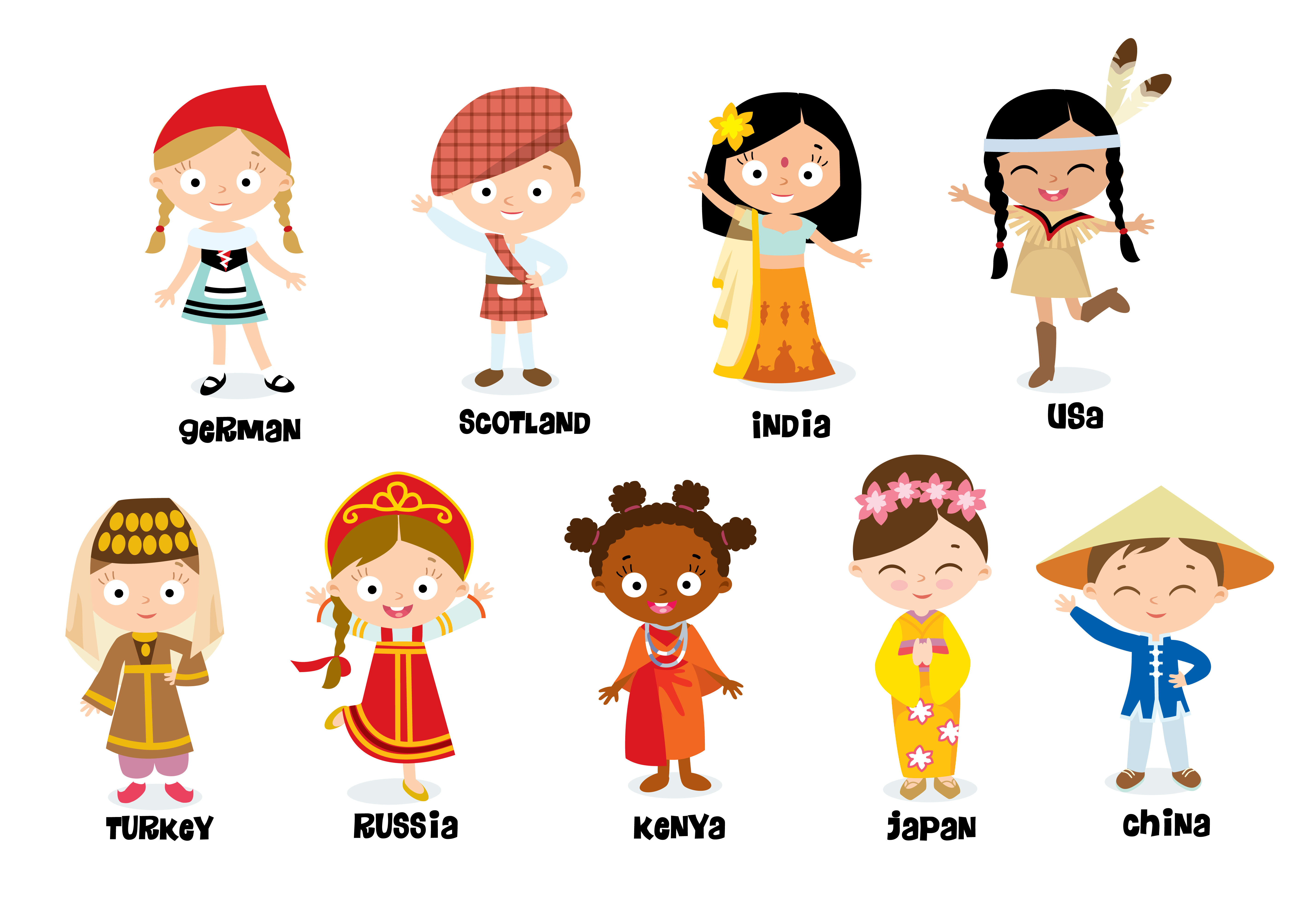Number comprehension Normal Worksheets for 8-Year-Olds
4 filtered results
-
From - To
Explore our engaging Number Comprehension Normal Worksheets designed specifically for 8-year-olds! These resources aim to enhance your child's numerical understanding through a variety of fun and interactive exercises. From basic addition and subtraction to more advanced concepts like place value and simple word problems, our worksheets offer age-appropriate challenges that promote critical thinking skills. Perfect for at-home learning or classroom activities, these worksheets encourage independent problem-solving while reinforcing essential math concepts. Unleash the joy of learning with our beautifully designed, easy-to-use worksheets that transform math practice into an enjoyable experience! Start your child's journey to numeracy mastery today!
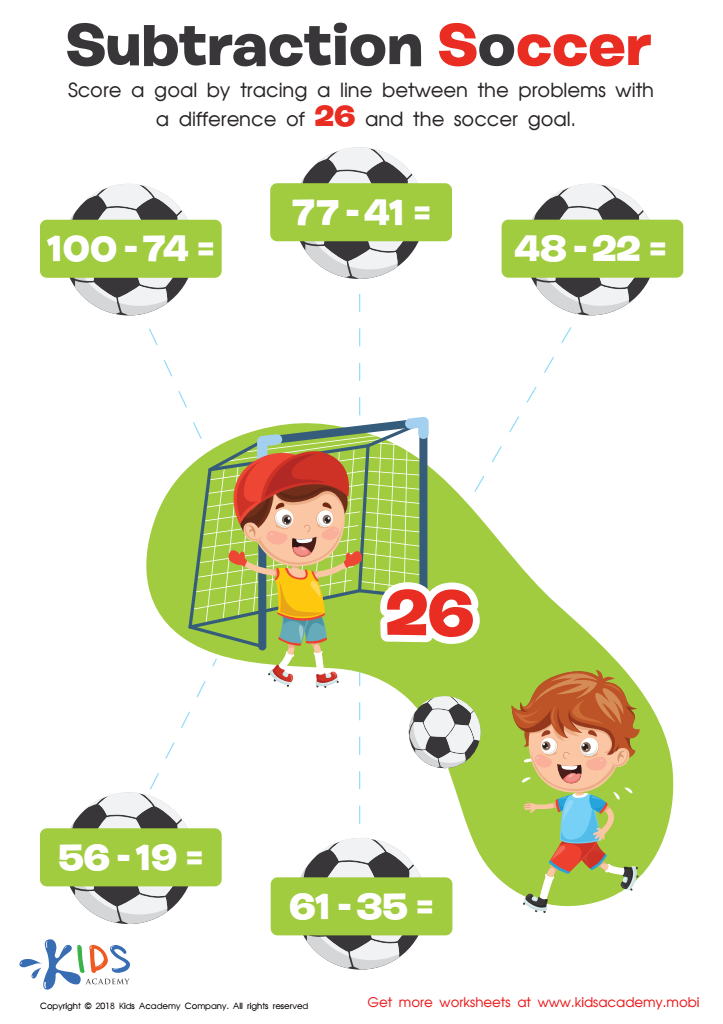

Subtraction Soccer Worksheet
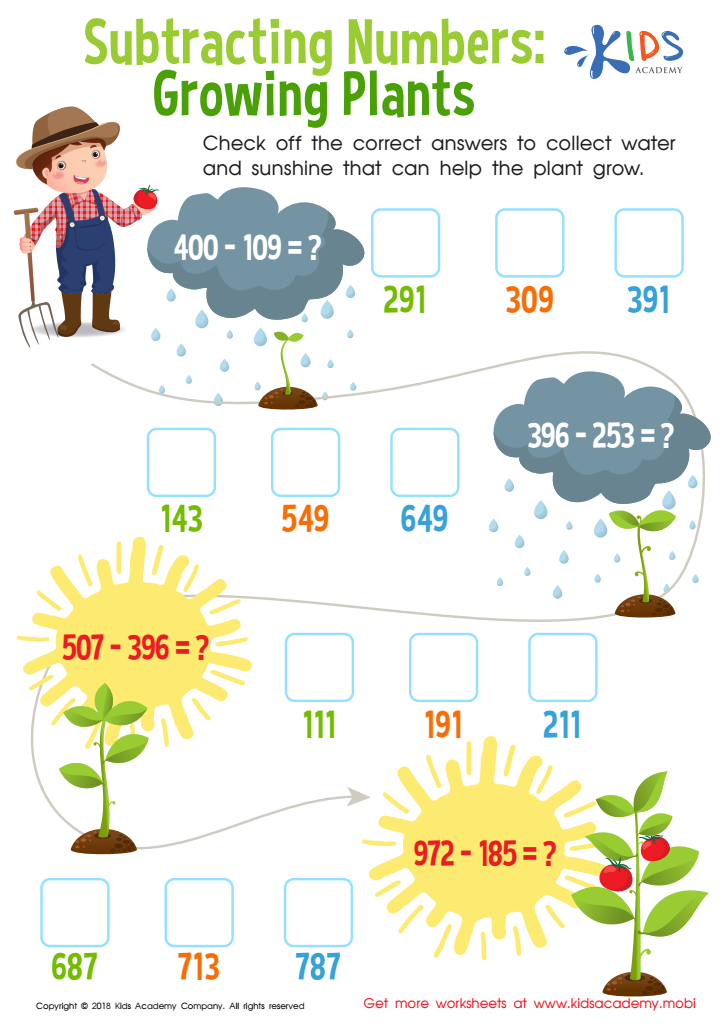

Subtracting Numbers: Growing Plants Worksheet
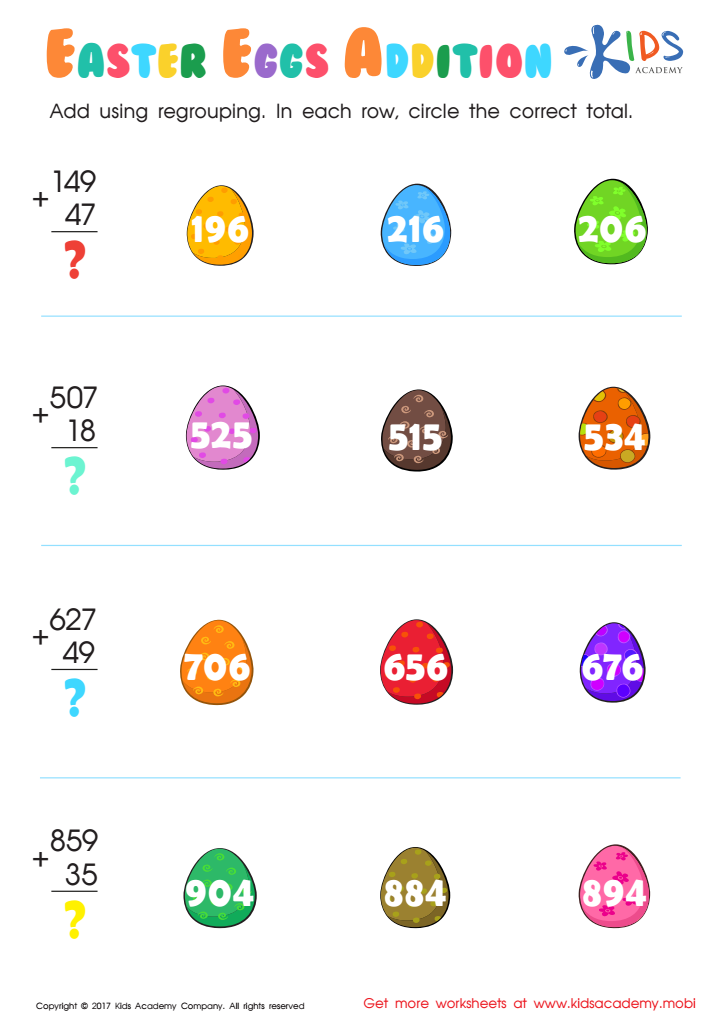

Addition with Regrouping Worksheet
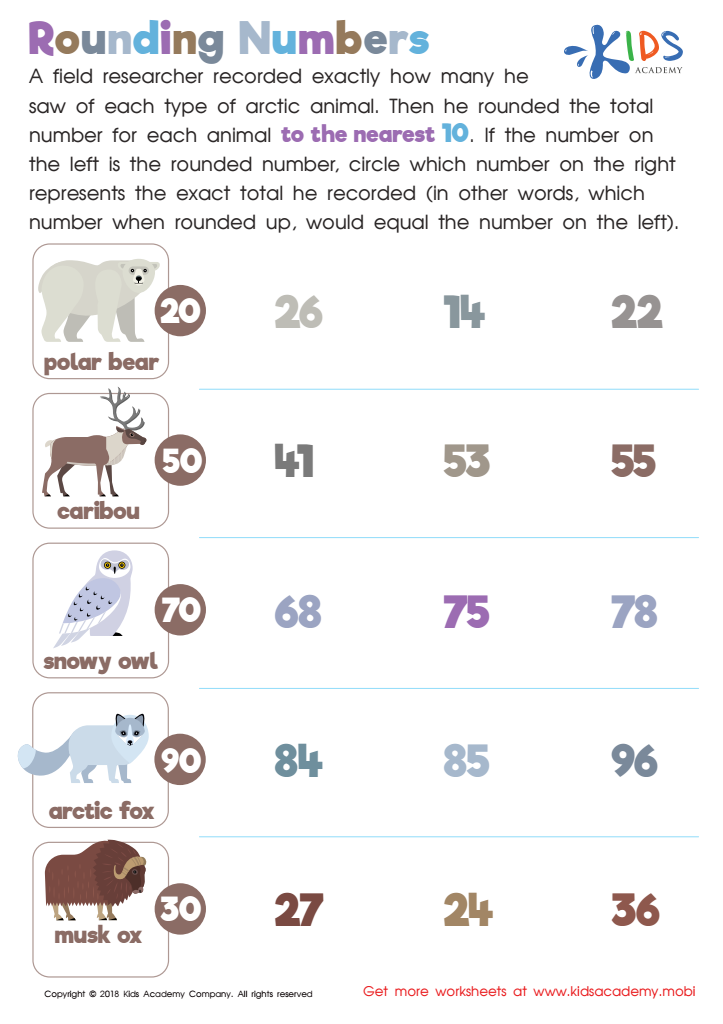

Rounding Numbers Worksheet
Number comprehension is crucial for 8-year-olds as it lays the foundation for all future mathematical learning and critical thinking skills. At this age, children transition from basic addition and subtraction to more complex numerical concepts, such as multiplication, division, and basic problem-solving. Parents and teachers should care about fostering number comprehension because it directly impacts a child's ability to engage in everyday activities that require mathematical understanding, such as budgeting, cooking, and time management.
Moreover, strong number sense nurtures a child’s confidence and independence, reducing anxiety associated with math-related tasks. When children understand the "why" behind numbers rather than just memorizing facts, they develop a deeper appreciation for mathematics, encourages curiosity, and promotes continuous learning. Furthermore, enhanced number comprehension can facilitate a more positive attitude toward STEM fields, setting the stage for future academic and career opportunities.
By supporting number comprehension early on, parents and teachers help to create critical thinkers capable of logical reasoning and problem-solving. This not only equips children with essential skills for academic success but also prepares them for real-world challenges, fostering lifelong learning and adaptability in an increasingly complex world. Investing in early math education is vital for both individual growth and a thriving society.
 Assign to My Students
Assign to My Students





